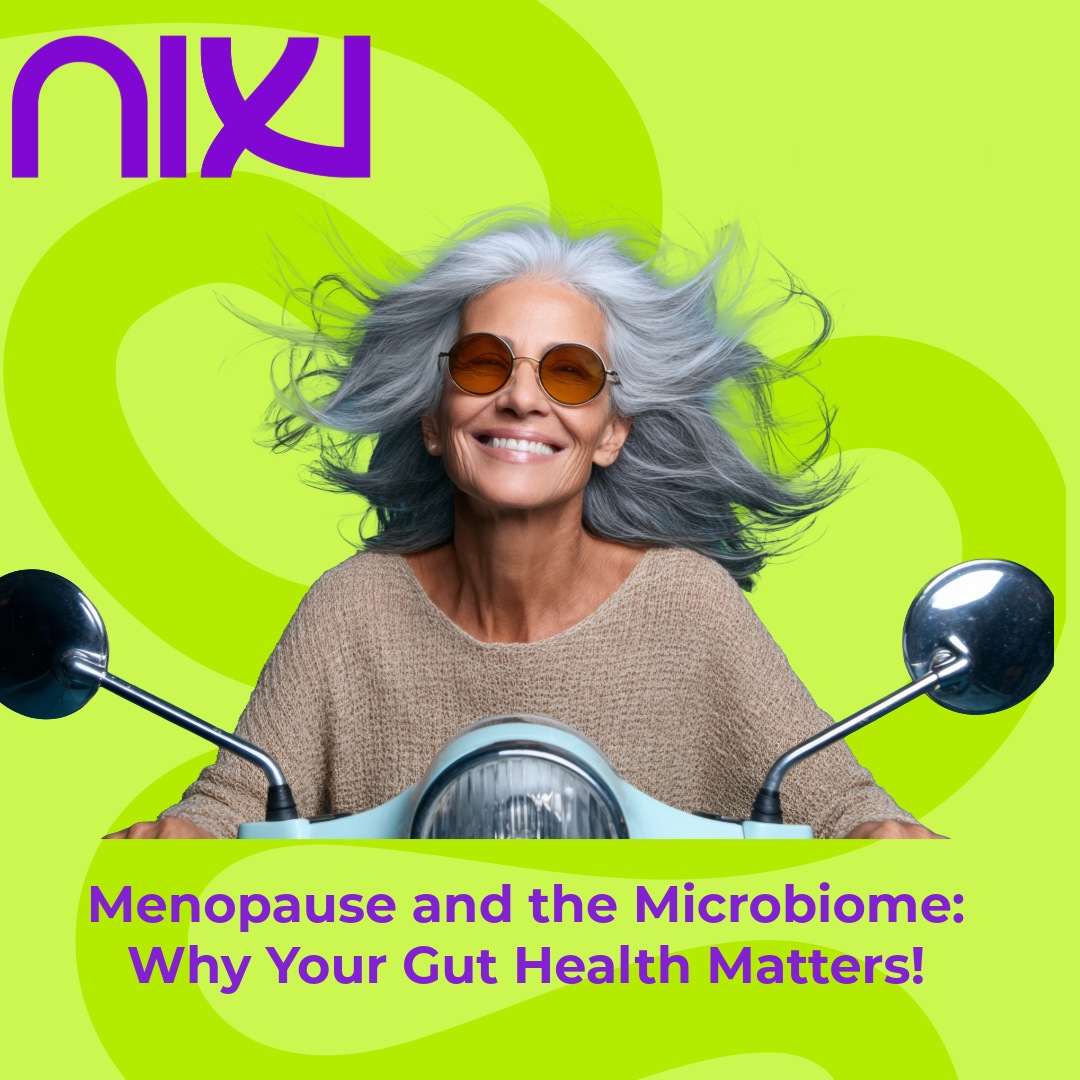
Whether you’re just dipping your toes into perimenopause or, like me, you’re already wading through the deep waters of the menopause, you’ll know that the change of life is not just about hot flushes.
The hormonal fluctuations linked to the menopause can affect us from head to toe to tummy. In this blog, I’ll explore why gut health is so closely tied to our hormones- and how making small changes can help make this transition smoother.
How hormones shape the gut
The gut isn’t just affected by the food we eat; it’s also influenced by our hormones. Oestrogen and progesterone help regulate bowel rhythm, gut lining strength, and even levels of the ‘happy hormone’ serotonin (most of which is made in the gut). When hormone levels fluctuate, as they do during peri and menopause, many women notice bloating, constipation, looser stools or slower digestion. I know I have, my bowels can be as sluggish as my energy levels.
Falling oestrogen alters the gut microbiome-the trillions of bacteria that work to digest food, support immunity and recycle hormones.
What is the oestrobolome?
The oestrobolome is the part of the gut microbiome that deals with oestrogen. This group of bacteria has the job of breaking down and recycling oestrogen.
Why does the oestrobolome matter? Well, if the bacteria are in good balance, they help keep your oestrogen levels steady- not too much, not too little. But if your gut is out of balance, it can affect how much oestrogen is floating around in your system, which in turn can influence things like mood, energy, weight, periods, and symptoms during perimenopause and menopause.
Think of the oestrobolome as your body’s own oestrogen-recycling team- and like any team, it works best when your gut health is in good shape. When these bacteria are out of balance, it can reduce your body's supply of active oestrogen-potentially exacerbating menopausal symptoms and impacting your wider health, from bone and heart health to mood. Looking after your gut can help ease digestive issues and also your wider menopausal problems.
Why the microbiome declines in menopause
After menopause, our gut diversity tends to fall. You might see a dip in beneficial bacteria like Lactobacillus and a rise in less helpful strains. Add in other menopause changes in sleep, stress, diet, and sometimes medication, and the gut environment can look quite different from how it was in our twenties and thirties.
This shift in the microbiome is thought to play a role in common menopause symptoms, from bloating and changes in digestion to mood and energy levels, because your gut and hormones are so closely linked.
In short- our hormones and gut bacteria talk to each other, so when one changes, the other does too.
Can better gut health ease menopause symptoms?
I read an interesting Times article about UK research showing that women eating 30 different plants a week reported up to 44% fewer mood symptoms and 32% fewer physical symptoms such as hot flushes and night sweats. Large-scale studies from ZOE have also linked specific gut bacteria to the severity of menopause symptoms, suggesting diet and lifestyle may make a real difference.
Practical tips for a happier gut
Here’s a few tips on how to keep your gut in balance and support your whole body during perimenopause, menopause and beyond”
- Eat more plants: Aim for 30 varieties a week. Focus on a range of wholegrains, pulses, nuts and seeds and a rainbow selection of fruit, veg and herbs.
- Focus on fibre: During menopause, fibre is your gut’s best friend – it keeps things moving, nourishes your good bacteria and helps balance blood sugar and cholesterol when hormones are in flux.
- Add fermented foods: Tuck into natural probiotics, including live yoghurt, kefir, sauerkraut, kimchi, and kombucha to help boost friendly bacteria.
- Think Mediterranean: That’s not pizza and pasta ( sadly), instead choose olive oil, legumes, fish, veg and wholegrains to support gut and heart health.
- Cut back on refined foods and alcohol: These disrupt the microbiome and worsen symptoms.
- Move, de-stress and rest: Exercise, stress management and quality sleep all nurture the gut-brain axis.
- Consider probiotics – Evidence is still emerging, but certain strains may help with bone, metabolism and symptom support.
Final Thought
Your gut and hormones are in constant communication. By feeding your microbiome with diverse plants, adding fermented foods, and caring for your lifestyle, you can support not just your digestion but your mood, sleep and overall wellbeing.
Find out more
Check out these sources that I used in writing this blog:
My Menopause Centre – Gut health and menopause
UEA Research Portal – Gut microbiota in menopause
Frontiers in Endocrinology – Menopause and gut microbiome
The Times – 30 plants a week study
